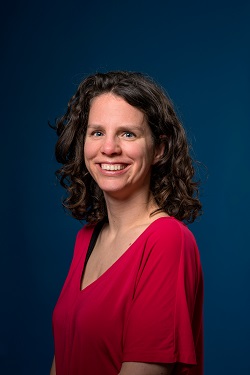Societal appreciation for teachers low on the job ladder
Societal appreciation for primary and secondary school teachers has deteriorated, particularly in the last ten years. Primary school teachers are particularly underappreciated compared to their secondary school counterparts. This may help to explain their lower wages and the 50% drop in enrolment in teacher training programmes.
Secondary school teaching graduates earn a relatively good salary, according to a study conducted by the Research Centre for Education and the Labour Market (ROA) and Ecorys, funded by the Netherlands Initiative for Education Research (NRO). Their starting salary is roughly ten per cent higher than that of other higher professional education graduates. The same cannot be said of graduates from teacher training colleges, who have received lower salaries since 2008 compared to other higher professional education graduates. Salary is one of the status indicators associated with social perception.
Education
Despite teachers being highly educated, the number of highly trained professionals has grown in recent years. As a result, the education level enjoyed by teachers has become less exclusive compared to the rest of the population. This may have influenced how teachers are perceived.
While there is certainly a shortage of secondary school teachers in specific subjects, the situation is even worse in primary education. The number of applications to secondary school teacher training programmes has remained more or less the same, while that number has dropped significantly for primary school applications. This has to do in part with the increased quality requirements, which could help improve how teachers are perceived in the long term.
Image
Societal appreciation for teachers has decreased, particularly in the last ten years. Physical education teachers have the worst image, followed by primary school teachers. Physical education teachers rank 86th on the job ladder and primary school teachers rank 69th on a list of 138 professions. The image of primary school teachers is comparable to that of a secretary, accountant or insurance agent. Secondary school teachers rank slightly better at 59th place, higher secondary education teachers and lower preparatory vocational education teachers rank 50th, and higher preparatory education teachers rank 43rd. While higher preparatory education teachers could be compared to an army colonel in the 1980s, these days they can be compared to a sergeant. The teachers themselves believe that their social perception is even lower, which is illustrative of their own low self-worth. The assessment of their own self-worth has little to do with their professionalization efforts, their affiliation with professional organisations or their inclusion in the teachers' register.
Explanation for the decline in societal appreciation for teachers
The reason for the decline in appreciation is hard to deduce. However, theories do exist, such as a lower pay scale and the feminisation and aging of the sector. The less exclusive position of teachers as highly educated professionals may also play a role. The question is whether these factors are the cause or a consequence of decreasing appreciation for teachers.
[Cörvers, F., Mommers, A., Van der Ploeg, S. & Sapulete, S. (2017). Status en imago van de leraar in de 21ste eeuw ('Status and image of teachers in the 21st century'). Research Centre for Education and the Labour Market (ROA), Maastricht and Ecorys, Rotterdam.]
This study was funded by the Netherlands Initiative for Education Research (NRO).

Photo: Jorrit Lousberg - Mediawijzer | Flickr
Also read
-
Nienke Verstegen, researcher at De Forensische Zorgspecialisten, has conducted research on aggression within forensic care and its impact on patients and staff. On July 6, 2023, she will receive her PhD from Maastricht University with her dissertation 'Hurt people hurt people. Characteristics and...
-
Patients admitted to hospital due to a severe COVID-19 infection exhibit no evidence of brain damage caused by the disease. This is the conclusion of an extensive study led by Maastricht University.
-
Due to the Western lifestyle with a high fat diet combined with little exercise, more and more people in the Netherlands are overweight or even obese. This causes an increased risk of type II diabetes. What can be done about this besides a healthier lifestyle? The answer comes from an unexpected...


